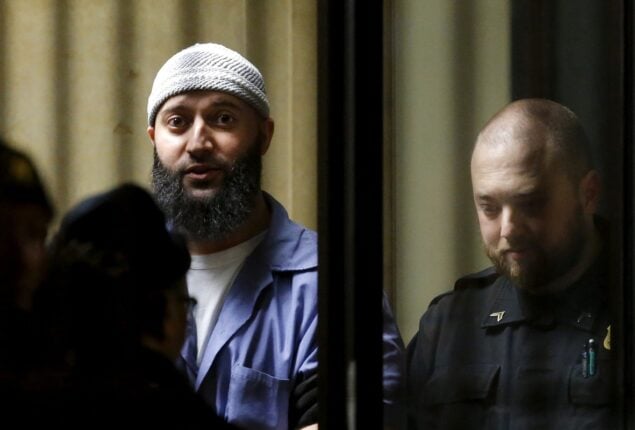Adnan Syed is released by a US judge
Adnan Syed's murder conviction from 2000 is overturned. The defense was never...

Adnan Syed’s case: Whatever you need to know
Adnan Syed, a senior in high school in Baltimore, Maryland, was found guilty in 2000 of murdering and strangling his ex-girlfriend Hae Min Lee.
National news outlets covered the case, in which the prosecution portrayed Syed as a violent and envious ex-lover who savagely murdered a gifted and intelligent young woman.
His conviction was overturned by a Maryland court on Monday, and a date for a new trial was set.
Murder conviction in the Serial podcast case is overturned
Syed has maintained his innocence for almost 25 years. His argument received a significant boost from a podcast, an unlikely source.
Rabia Chaudry, a lawyer and close family friend of the Syeds who lives in Baltimore, emailed Sarah Koenig and requested that she reopen the investigation into Lee’s murder more than ten years after Syed was sentenced to jail.
The podcast Serial’s first season got off to a good start thanks to that email. Each episode of the show, which debuted in the fall of 2014, attempted to put together a timeline of the events that took place the night Lee was slain.
The central query of Serial is this.
The first episode features Ms. Koenig saying, “For the last year I’ve spent every working day trying to figure out where a high school kid was for an hour after school one day in 1999.”
The “kids” she interviewed at the time were actually adults, and some of their tales had changed.
Internet sleuths and armchair detectives sprung into action as each episode disclosed fresh information—and perhaps new suspects—and debated their hypotheses on social media.
The discussion around Syed’s case would eventually aid him in winning a fresh trial within a few months.
Koenig explains the reasons for Adnan Syed’s conviction being reversed in the most recent Serial episode. She claims that during the initial trial, prosecutors allegedly neglected to look into and rule out two prospective suspects who were known to the investigators at the time, as his attorneys claimed fresh information had come to light.
The validity of the witness testimony and cell phone evidence that were first utilized to convict Syed was also called into question by his attorneys.
Although a judge agreed and reversed Syed’s conviction, this does not absolve him of killing Lee. Now, prosecutors must choose between retrying Adnan Syed and reopening Hae Min Lee’s case to hunt for additional suspects.
The success of Serial sparked a boom in podcast listening. The real crime theme and Ms. Koenig’s distinctive confessional approach kept fans downloading and tuning in each week.
More than 300 million people have downloaded the first season of Serial, which is one of the most well-known podcasts in the world.
Even if the show’s later seasons weren’t as well-liked, Ms. Koenig and her crew were instrumental in developing the “bingeable” podcast model.
Syed was given a new trial in 2015, in part because to fresh information obtained while filming Serial.
But the judge also turned down his bail application. Years passed while his legal team argued for a fresh trial and attempted to appeal his conviction all the way to the Supreme Court. He remained behind bars.
The Case Against Adnan Syed, a four-part documentary series created by Ms. Chaudry, had its HBO debut in 2019.
The argument in the series was that Syed, a Muslim, was condemned in part due to racial prejudice.
In the end, it was discovered that forensic tests had turned up no evidence of his DNA on Lee’s body when he was murdered.
The Lee family declined to take part in Serial and has consistently argued that Syed was correctly convicted and that justice was done during the initial trial.
The family of Syed reportedly told reporters that the podcast had “reopened wounds few can comprehend” in 2016, when Syed was given a second chance at trial, according to the Baltimore Sun. They also expressed sadness that “so few [were] willing to speak up for Hae” and their belief that the podcast had misled listeners.
Young Lee, the victim’s brother, pleaded for the family in court before the judge delivered his decision on Monday.
“I’m not a podcast listener. This has been actual life for more than 20 years; it is an unending nightmare.”
After Syed’s conviction was overturned, the prosecution has 30 days to determine whether to retry him or dismiss the charges.
In the event that Lee’s murder case is reopened, fresh information might support Syed’s defense.
Additionally, it might finally bring about the much-needed closure for the sad Lee family.
Two potential “alternative” suspects, none of whom has ever been named or charged in the case, according to the prosecution, have been identified.
Catch all the World News, Breaking News Event and Latest News Updates on The BOL News
Download The BOL News App to get the Daily News Update & Follow us on Google News.